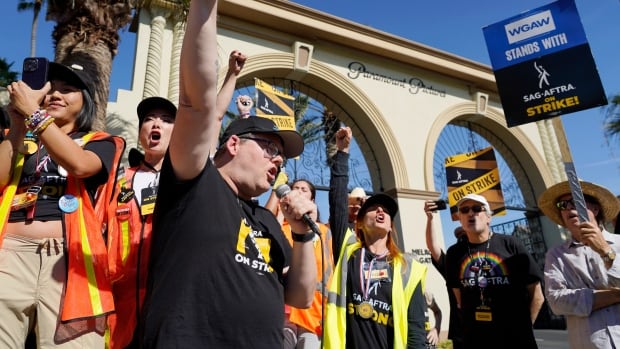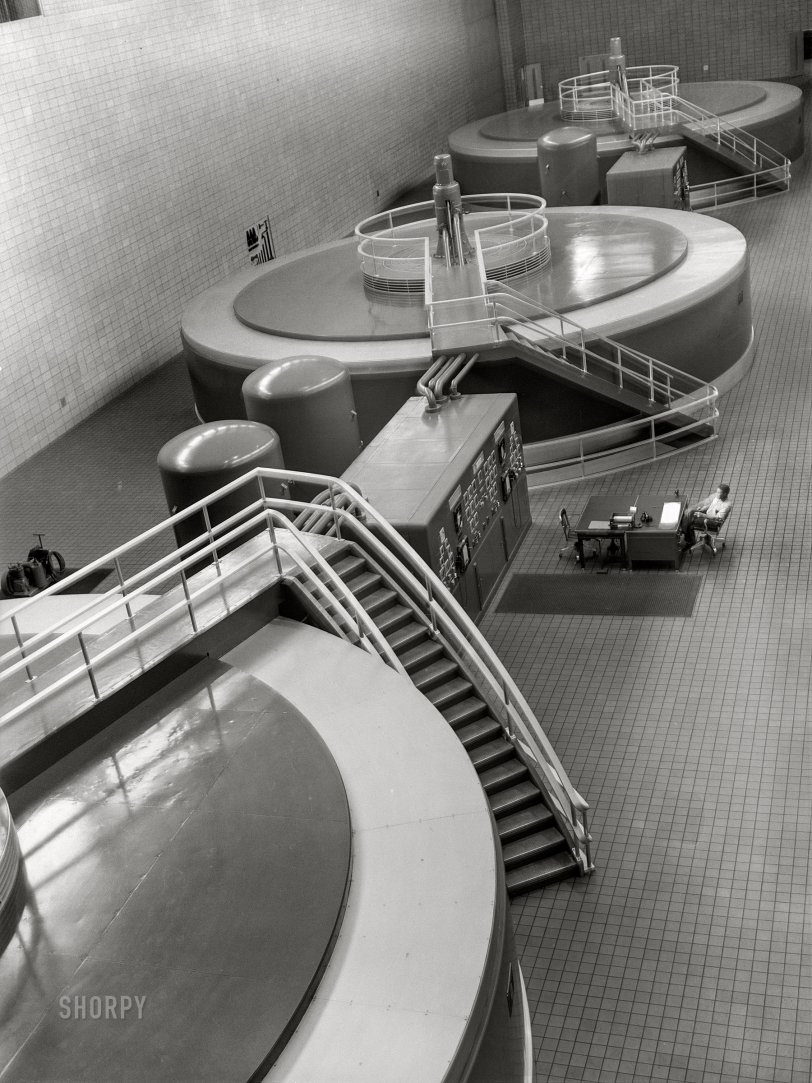The latest decisions out of the Supreme Court, first on when to hear former President Donald Trump’s immunity appeal, then on how to deal with his Colorado ballot disqualification, have made one thing very clear: We need to stop deluding ourselves that a majority of the Supreme Court sees the same political emergency that many of us do in terms of the threat Trump poses to American democracy. Whether it understood or even accounted for the consequences of the decision to delay the criminal case against him and to expedite its decision to keep him on the ballot, the high court ensured this past week that Trump is extremely unlikely to have a jury decide if he engaged in election subversion before voters cast their ballots for the next U.S. president this fall. After failures by outgoing Senate Minority Leader Mitch McConnell, Attorney General Merrick Garland, and now the Supreme Court, it’s clear that if anyone is going to save American democracy, it is going to be the voters.
To briefly recap how we got here: Trump engaged in a multipronged effort to turn himself from a loser in the 2020 presidential election into a winner by pressuring federal, state, and local officials to find “fraud” or “irregularities” that could serve as the basis to send in a bunch of fake electors to Congress. That might have provided a fig leaf for allowing Congress to ignore the will of the voters and subvert the election outcome by declaring Trump the winner. The plan failed. After Trump’s lies inspired a violent invasion of the Capitol on Jan. 6, 2021, Congress counted the real Electoral College votes, and Joe Biden was declared the winner. The House of Representatives impeached (again) Trump for his attempted election subversion (again), and 57 senators voted to convict, short of the 67 needed under the Senate’s rules. McConnell pointedly voted no, bringing others with him, arguing that the criminal and civil processes would take care of Trump.
That kicked the ball over to Garland’s court, where he did little—as far as the public is aware—for a long, long, long time. The Justice Department focused instead on the Capitol invaders, not the folks at the top who directed them or who participated in wider attempts to interfere with the peaceful and legal transition of power. Only belatedly did Garland appoint Jack Smith as special counsel to investigate these potential crimes, killing precious time that we all knew was ticking because Trump had said, early on, that he was going to run for president. By choosing to run, Trump put himself in a position to yell “Election interference!” as every charge was brought by a DOJ attorney headed by an appointee of his political rival. (Running also sets himself up for self-pardons or to scuttle ongoing federal cases if he wins the presidency again.)
It sure looks as if Smith moved expeditiously, not only in the election subversion case but also in the Florida classified documents case. But Trump has every incentive to delay, and a key part of his strategy involved taking an “interlocutory” (that is, before trial) appeal in the election interference case, claiming that he is wholly immune from criminal prosecution for official acts as president. (Never mind that many of his acts, such as cajoling the Georgia secretary of state to “find” 11,780 votes, were not in any way part of the official duties of a president, who has no role in running or supervising elections.)
The wheels of justice take time, but in this case the Supreme Court holds all the cards. Smith asked the justices back in December to let this appeal leapfrog over the D.C. Circuit, which sits between itself and the trial court, and the Supreme Court refused. That cost months. Then, after the circuit ruled against Trump, Smith tried to expedite things again.
Many of us wrongly believed that the court would move quickly and let the case get back to trial, on the reality-based theory that the American people deserve to know before voting if Trump, the candidate in 2024, was guilty as the 2020 candidate of trying to steal the election. The case for sending it back for trial is especially strong because Trump’s immunity argument on the merits is loony. As one D.C. Circuit judge noted, it would allow the president to order SEAL Team Six to assassinate political rivals without any consequences.
But the court did not move quickly. Not at all. After 13 days of silence following the end of emergency briefing, it set a schedule allowing almost two months of further briefing, with a likely decision delayed until two months after that, at the end of June. Compare that to Bush v. Gore, in which the Supreme Court went from order to hearing the case to issuing a final decision in just a few days. Or, perhaps more pertinently, compare it to the decision Monday to allow Trump to remain on the ballot, despite arguments for his disqualification under Section 3 of the 14th Amendment, after a speed run of just three months.
Despite this timeline of a May or June (or July) SCOTUS decision, it is possible that Trump could go on trial for election subversion before the 2024 election. Indeed, over at Just Security, Norm Eisen, Matt Seligman, and Joshua Kolb game out eight-week trials and 12-week trials with different start dates going far into the fall up to and sometimes even through Election Day. And if you watch the cable news channels, you can see all kinds of legal commentators suggesting that the courts could still move heaven and earth to get this thing to trial by Election Day. The chief justice could release an opinion before dissents are authored. The court could still issue a decision in a matter of days after arguments.
But why should we expect the court to do anything of the sort in light of how it has acted already? Just because the court expedited the Colorado ballot removal case doesn’t mean that it considers the election subversion trial an emergency. We made a massive category error in imagining that at least six justices, the number needed to rubber-stamp the D.C. Circuit Court’s ruling without further argument, saw the need for speed in the Trump immunity case.
And what did the court do on the merits in the disqualification case? It not only held that states cannot enforce the disqualification provisions against an insurrectionist running for federal office. It put a straitjacket on Congress’s ability to enforce it too, raising serious questions about whether even Congress could possibly satisfy the Supreme Court if it attempts to say that Trump cannot serve as president again.
With disqualification off the table, attention turns back to the immunity appeal pending before the court and whether Trump can be rushed to trial before the election. There are a lot of people who are devoting their time to crafting scenarios in which the court might still evince interest in saving itself and the possibility of preserving a functioning democracy after the election by expediting a decision in Trump’s immunity appeal. That’s their prerogative, and we fervently hope they are correct. But let’s be candid about the fact that the court has missed its last best chance to do so: A completed trial before Election Day seems highly unlikely. Rolling Stone reports that Trump’s lawyers literally popped Champagne when the Supreme Court’s scheduling order came out.
Even though Smith has now taken the view that the internal rule keeping the DOJ from bringing charges within 60 days of the election doesn’t apply to criminal cases that have already been instituted, it would be quite extraordinary for a court to make one of the two major political party candidates stand for trial in the middle of the general election season and even during the period of early voting (which begins weeks before Nov. 5, Election Day). Would a court even start a trial before Election Day that wouldn’t be finished until afterward? Such trials are rare. We think of the 2008 case of Sen. Ted Stevens of Alaska, who wanted to go on trial and clear his name of corruption charges before the election. He went on trial, was convicted, and lost reelection. (A blistering report from the DOJ issued after trial showed that it hid exculpatory evidence from Stevens.)
And even if Judge Tanya Chutkan allows the trial to go forward, Trump has a right to put on his defense, and he would have every incentive to call witnesses and drag out sending the case to the jury until past Election Day.
Do we deserve a Supreme Court that cares about putting the evidence of Donald Trump’s potential criminality before the American people before they head to the polls? We do. Do we have such a court? We do not. Clearly. So, the sole remaining question seems to be whether it is a delusion or a useful exercise to spin out elaborate fantasies in which the justices reverse course to step up. Is producing an elaborate flowchart of a trial that might take place between the first and second presidential debates going to somehow soften and change a justice’s mind?
There are between four and five votes at the court to treat Trump’s presidency as ordinary and his actions in trying to reverse the election results as not a potential national emergency. As Aziz Huq notes, Donald Trump is getting treated infinitely better than most criminal defendants before the court, which doesn’t give a break even to those who are actually innocent of the crimes of which they are accused. We can sit around reading entrails from the court’s scheduling order in the immunity appeal to attempt to parse that breakdown and to hurl our efforts at changing those numbers through hope and limited influence. Or we can thank the court for its inadequate service and move on.
We should move on.
In the end, all this wishcasting about a Supreme Court that is going to save us has material costs. It deludes us into thinking that someone else is going to rush in while we watch and cheer from the stands. Call it Mueller Derangement Syndrome or whatever else you’d like. But let’s stop thinking there’s someone else. The 2024 election, like everything else, all comes down to turnout. That isn’t in the court’s hands. It’s in ours.




